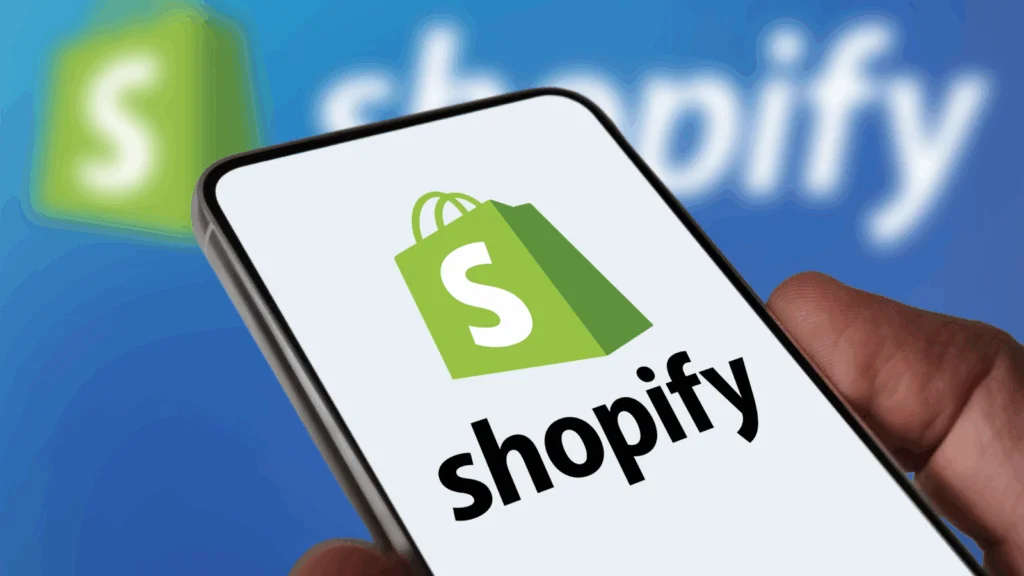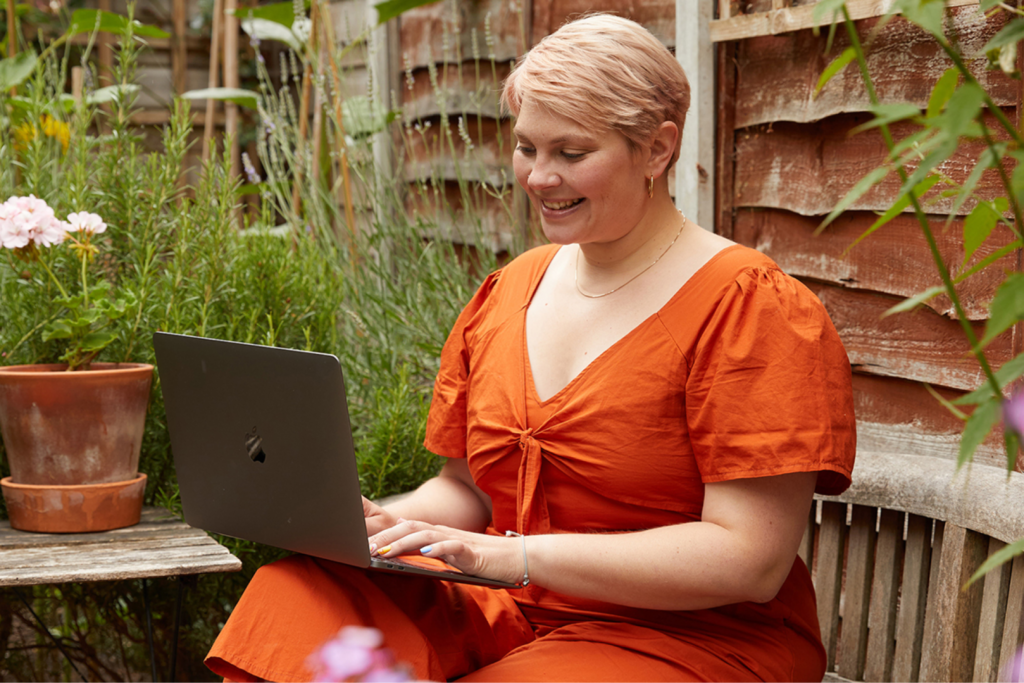Start a print-on-demand business today
The best platforms for a home-based business depend on what you want to sell.
Shopify, Wix, and Squarespace make it simple to launch an online store, while Etsy, Amazon,and eBay connect you directly with shoppers. If you’re creative, use these sales channels to design and sell custom merchandise risk-free through print-on-demand services like Printify.
If teaching or content is your focus, platforms like Teachable, YouTube, and Substack help monetize your expertise. From Upwork to Uber, there’s a platform for every path – your role is to pick the one that fits your skills and lifestyle.
Print on Demand and creative product platforms

Print on Demand (POD) is one of the easiest options for side business ideas. You don’t need inventory or upfront investment – just your own creative designs and a platform.
Upload a design, sell it online, and only pay when a customer orders. Your POD provider handles printing, packing, and shipping.
Printify: Scalable network for independent creatives
Printify connects sellers to a vast network of Print Providers, giving you flexibility in production and fulfillment. With the Product Creator, you can design products, generate mockups, and publish them directly to your online store or marketplace.
Key features of Printify:
- 1,300 customizable products, from apparel to home goods
- Diverse network for local and international fulfillment
- Lower base prices for higher seller profit margins
- Integrations with major eCommerce platforms and marketplaces
Best for: Independent creators, side hustlers, and entrepreneurs who want streamlined production, competitive pricing, and flexibility to scale quickly.
Printful: In-house fulfillment with premium branding options
Printful runs its own in-house fulfillment centers, giving business owners reliable quality control and faster turnaround. Its Design Maker helps create products and visuals, while branding extends to packaging, labels, and inserts for a polished customer experience.
Key features of Printful:
- Wide product catalog including apparel, accessories, and home goods
- Global in-house fulfillment centers for consistent quality
- Branding options like custom packaging, pack-ins, and labels
- Integrations with major eCommerceplatforms and marketplaces
Best for: Entrepreneurs or established major brands who want consistent quality, premium branding, and a professional buying experience for their customers.
Redbubble: Marketplace exposure for artists
Redbubble gives artists access to its global marketplace, making selling designs on apparel, accessories, and home goods easy. The platform handles printing, shipping, customer service, and payouts for you.
Key features:
- Wide catalog of customizable products
- Built-in marketplace traffic
- Hands-off fulfillment
Best for: Artists who want passive income without running an online store.
Society6: Art-focused marketplace with fixed royalties
Society6 specializes in art-driven home décor and lifestyle goods. Creators upload work and earn fixed royalties while Society6 handles logistics.
Key features:
- Curated, design-first product catalog
- Strong home décor focus
- Transparent royalty payouts
Best for: Creatives seeking exposure in a curated, design-conscious marketplace.
eCommerce and online store platforms

Shopify: Scalable eCommerce for independent stores
Shopify helps entrepreneurs build branded online stores with simple tools and POD integrations like Printify.
Read more on how to start a Shopify store.
Key features:
- Customizable storefront builder
- Built-in payments and AI tools
- Multichannel sales options
Best for: Business owners ready to grow beyond marketplaces and own their brand.
Etsy: Marketplace for handmade and unique goods
Etsy connects sellers with millions looking for handmade crafts and gifts. It’s quick to set up, but fees apply.
Read more on how to sell on Etsy.
Key features:
- Built-in shopper traffic
- Easy listing tools
- Diverse niches and audiences
Best for: Beginners launching home-based business ideas with handmade or POD products.
Amazon FBA: Scale with Prime logistics
Amazon FBAstores your products in Amazon warehouses, including Prime shipping and customer service support. The Prime service and Amazon’s built-in audience give home business owners a powerful kickstart.
Key features:
- Access to Amazon’s customer base
- Prime eligibility boosts trust
- Storage and shipping included
Best for: Sellers with proven products who want to scale quickly.
WooCommerce: Flexible WordPress eCommerce
WooCommerce is a plugin thatturns WordPress into an eCommerce store with full customization. Sellers can add products, payment options, and integrations, including direct connection with Printify.
Read more on how to set up WooCommerce.
Key features:
- Free plugin with flexible setup
- Huge ecosystem of add-ons
- Direct integration with Printify
Best for: WordPress users who want to add eCommerce with maximum flexibility and ownership.
Service-based business platforms

Fiverr: Quick-start freelancing
Fiverr is one of the best businesses to start with little money. The website lets freelancers sell services like writing, digital marketing, or social media management with low startup costs.
Key features:
- Package-based services
- Built-in pool of clients
- Demand across creative and digital services
Best for: Freelancers and side hustlers who want to find clients and earn money fast.
Upwork: Global marketplace for professionals
Upwork connects freelancers with businesses worldwide for digital marketing, consulting, design, or development projects. The platform handles contracts and payments, giving freelancers secure work on their own schedule.
Key features:
- Broad client base
- Escrow for safe payment
- Set your own schedule
Best for: Professionals seeking consistent contracts and business growth.
TaskRabbit: Local services on demand
TaskRabbitconnects you with clients who seek assistance with cleaning services, moving, and repairs. You’re your own boss, controlling the schedule and rates.
Key features:
- Marketplace for practical skills
- Transparent fees and payouts
- Work flexible hours
Best for: Entrepreneurs running a home business by offering practical skills while keeping a better work-life balance.
Clarity.fm: Paid calls for experts
Clarity.fm lets professionals charge per minute for consulting. It’s a low-commitment way to test demand before creating online courses.
Key features:
- Per-minute billing
- Global access to clients
- Phone-based model
Best for: Experts wanting a rewarding venture from advice calls.
Coach.me: Coaching and mentoring platform
Coach.me supports coaches and mentors offering structured programs, including tutoring services.
Key features:
- Goal tracking tools
- Direct payment system
- Works well for service-based businesses
Best for: Coaches and trainers expanding into online education.
Content creation and education platforms

YouTube: Video-first platform
YouTube powers content marketing and creation with ads, memberships, and merch.
Key features:
- Global reach through search
- Multiple revenue streams
- Printify merch integration
Best for: Creators growing an online business with passive income potential.
Teachable: Courses made simple
Teachable lets you sell courses and workshops while keeping business finances separate.
Key features:
- Drag-and-drop builder
- Integrated checkout
- Scales online education programs
Best for: Professionals turning skills into profitable business models.
Thinkific: Flexible education platform
Thinkific offers customization for lessons, communities, and branded sites.
Key features:
- Structured learning tools
- Community features
- Free and paid plans
Best for: Coaches expanding into tutoring and professional development.
Substack: Newsletter publishing
Substack helps creators monetize newsletters with subscriptions, turning email into a steady revenue.
Key features:
- Email-first platform
- Free or paid newsletters
- Subscription monetization
Best for: Home business owners building recurring income through email.
Medium: Blogging with reach
Medium lets writers earn through its Partner Program while testing home business ideas.
Key features:
- Built-in audience
- Partner Program earnings
- SEO visibility
Best for: Writers validating business models through publishing.
Patreon: Membership platform
Patreon gives creators a steady income from memberships, often combined with social media marketing.
Key features:
- Tiered subscriptions
- Supporter-only content
- Digital product delivery
Best for: Creators seeking recurring revenue and business growth through community.
Gig economy and side-hustle apps

Uber, DoorDash, and Instacart: Flexible local service
Uber, DoorDash, andInstacart apps turn vehicles into home-based businesses with low startup costs. These are good part-time business ideas, where drivers and shoppers work their own hours, but you’ll need to check local regulations and carry business insurance.
Shared key features:
- Flexible scheduling
- On-demand local services
- Earnings plus tips
- Peak pay boosts
Best for: Entrepreneurs testing home-based business ideas alongside a full-time job.
Rover: Pet care services
Rover connects sitters and walkers with pet owners for boarding, drop-ins, and walks.
Key features:
- Pet-sitting and walking jobs
- Ratings and reviews build trust
- Work from home
Best for: Animal lovers wanting a profitable business with flexible hours.
Airbnb Experiences: Workshops and events
Airbnb Experiences lets entrepreneurs host classes or handmade crafts demos. Hosts may need a business license and should check local regulations.
Key features:
- Online or local experiences
- Global marketplace reach
- Creative way to test home-based business ideas
Best for: Creators who want to sell courses or promote unique skills.
FAQ
The best way to start your own home-based business depends on your skills and goals.
Creatives and sellers thrive with Print on Demand, freelancers with managing social media accounts or freelance writing, and educators with offering tutoring services.
Choose a business structure that separates personal and business finances and matches your lifestyle.
Yes. With $5,000, you can launch an eCommerce store, open a business bank account, and cover essentials like tools, shipping, or a business credit card.
Many small businesses succeed with a lean start, a clear business plan, and wise investments in marketing strategies or paid ads.
For a small business, Shopify is ideal for a branded eCommerce store, while Etsy and other online marketplaces suit handmade crafts.
Service platforms like Fiverr also help freelancers find clients. Pick based on your target market, preferred business structure, and niches with growing demand.
Beginners often succeed with selling print-on-demand merchandise, freelance writing, and content creation. Others turn skills into businesses by working as a professional organizer, doing email management, or promoting products through online content.
Start lean with low startup costs, simplify administrative tasks with helpful tools, and follow a clear marketing plan as you grow.
Conclusion
There’s no single success formula for a home-based business. Entrepreneurs thrive with service-based businesses, content creation, and starting online stores or gigs.
The key is choosing the business model that fits your skills, resources, and lifestyle.
If you’re creative and want a profitable business with low startup costs, Print on Demand is one of the most accessible ways to begin. With Printify, you can design, publish, and sell products worldwide without upfront investment or inventory.
Ready to launch? Start your own home-based business today with Printify and turn your ideas into income.












